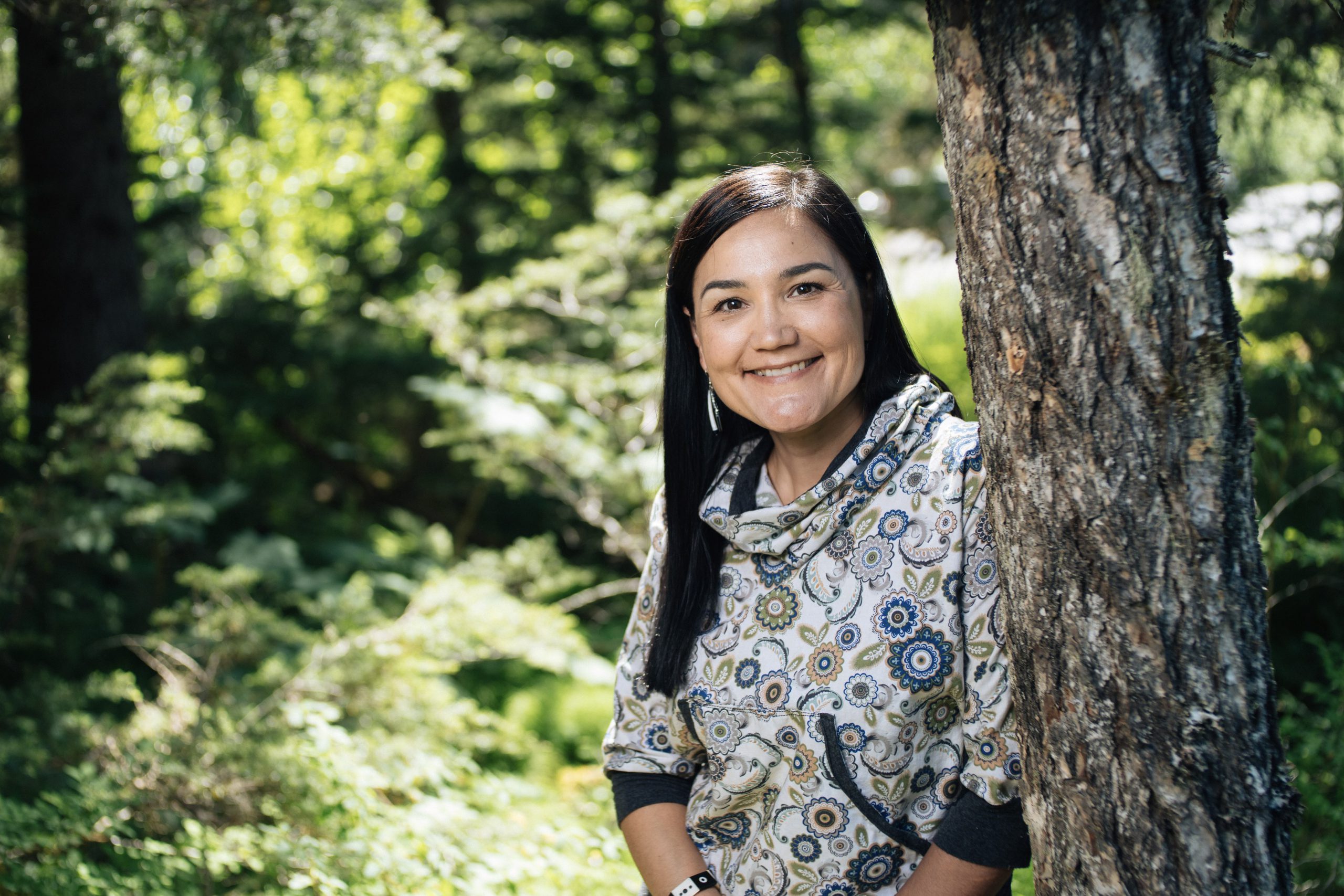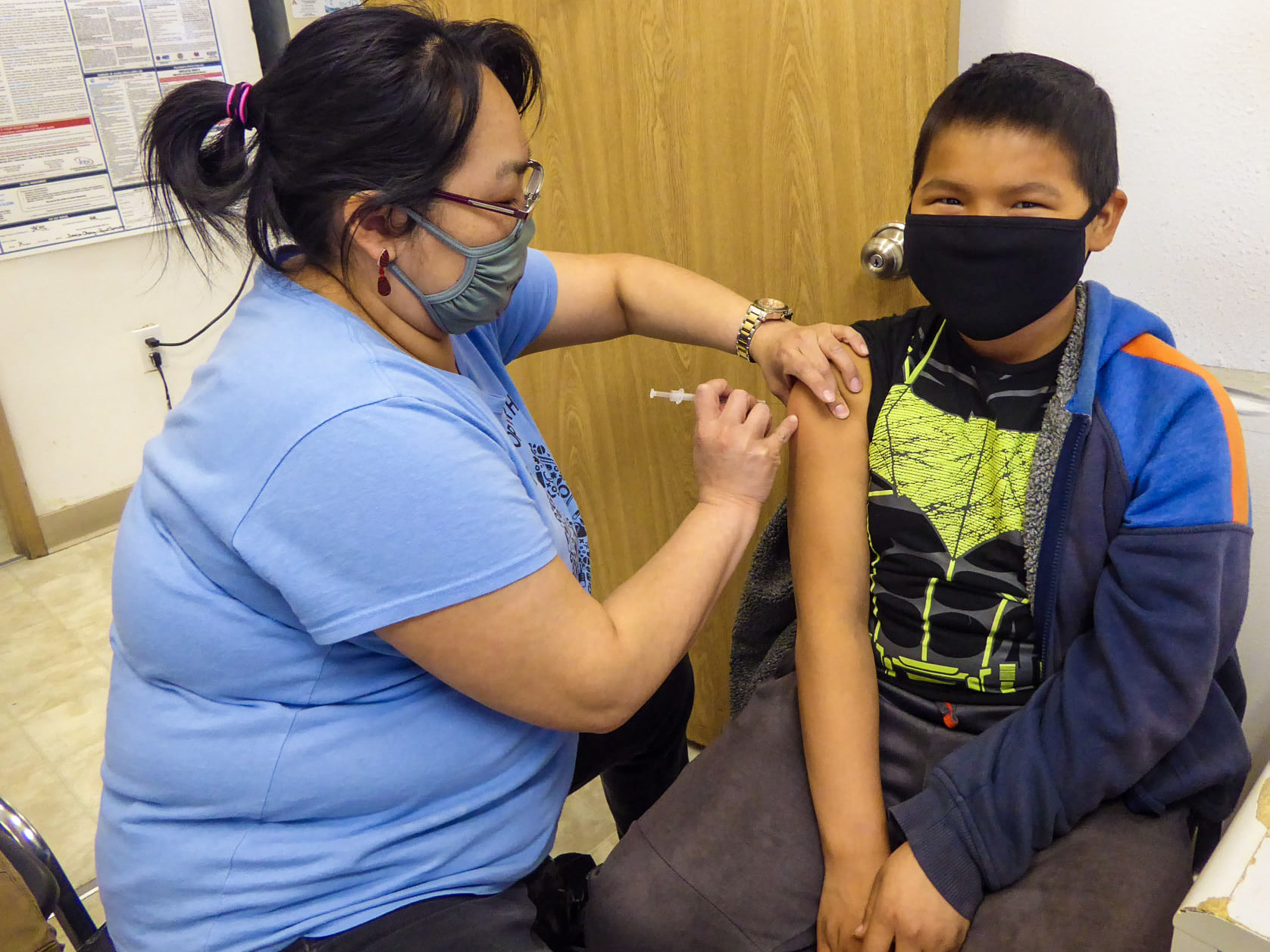Indianz.Com > News > Shauna Hegna: Alaska Native corporations serve tribal communities

Shauna Hegna: Alaska Native corporations serve tribal communities
Thursday, June 16, 2022
The National Congress of American Indians (NCAI) mid-year conference was supposed to be a time for gathering and celebration after being kept apart by the pandemic for several years. As Alaska Native leaders, we were thrilled to welcome our Indigenous friends from the Lower 48 to our beautiful homelands as we work toward common goals.
We will still do those things, because there will always be far more that we have in common with one another than there are attempts to divide us. However, we must recognize the unfortunate and unnecessary conflict that has been created at this conference through a continued effort by a handful of individuals that would harm Alaska Native people by marginalizing Alaska Native corporations (ANC). These actions have proven in the past to divide and weaken our broader Indigenous community.
In the well-publicized CARES Act case, the U.S. Supreme Court last year upheld the rights of ANCs to serve as tribal entities for the purpose of providing benefits to their Alaska Native shareholders under the Indian Self Determination and Education Assistance Act (ISDEAA). Having lost the case, some tribal leaders still seek to disregard the critical support ANCs provide Alaska Natives. This message is further amplified in messaging aimed at reducing the role and history of ANCs to that of mere “state-chartered corporations”.
Shauna Hegna is the President of Koniag, the Alaska Native Regional Corporation for Kodiak Island. She is also a tribal citizen of the Native Village of Port Lions.
Relevant Documents
NCAI Support for Closely Monitoring Legislation Involving Definitions of “Indian Tribes” in Light of Yellen v. Confederated Tribes of the Chehalis Reservation et. al (ANC-22-003)
U.S. Supreme Court Decision: Yellen v. Confederated Tribes of Chehalis Reservation
Syllabus |
Opinion [Sotomayor] | Dissent [Gorsuch] | Full Document
Related Stories
Search
Filed Under
Tags
More Headlines
Cronkite News: Gathering addresses ‘epidemic’ among Native people
VIDEO: Cody Desautel on tribes and federal forest management
AUDIO: Legislative Hearing on Discussion Draft of Forest Management Bill
Native America Calling: Remembering the 1974 Navajo border town murders
Native America Calling: Can the right approach close the Native immunization gap?
Cronkite News: Long COVID cases remain high in Arizona
Native America Calling: Eyes in the sky for development, public safety, and recreation
Native America Calling: Three new films offer diverse views of Native life
NAFOA: 5 Things You Need to Know this Week
Chuck Hoskin: Cherokee Nation works toward cure for arthritis
Native America Calling: Protecting young people from the down sides of social media
Cronkite News: Fake ‘shaman’ among candidates failing to make Congressional ballot
Native America Calling: New Native voices in poetry
Cronkite News: Tribes air concerns about border at hearing in nation’s capital
Native America Calling: Indiginerds descend on Oklahoma City
More Headlines
VIDEO: Cody Desautel on tribes and federal forest management
AUDIO: Legislative Hearing on Discussion Draft of Forest Management Bill
Native America Calling: Remembering the 1974 Navajo border town murders
Native America Calling: Can the right approach close the Native immunization gap?
Cronkite News: Long COVID cases remain high in Arizona
Native America Calling: Eyes in the sky for development, public safety, and recreation
Native America Calling: Three new films offer diverse views of Native life
NAFOA: 5 Things You Need to Know this Week
Chuck Hoskin: Cherokee Nation works toward cure for arthritis
Native America Calling: Protecting young people from the down sides of social media
Cronkite News: Fake ‘shaman’ among candidates failing to make Congressional ballot
Native America Calling: New Native voices in poetry
Cronkite News: Tribes air concerns about border at hearing in nation’s capital
Native America Calling: Indiginerds descend on Oklahoma City
More Headlines
